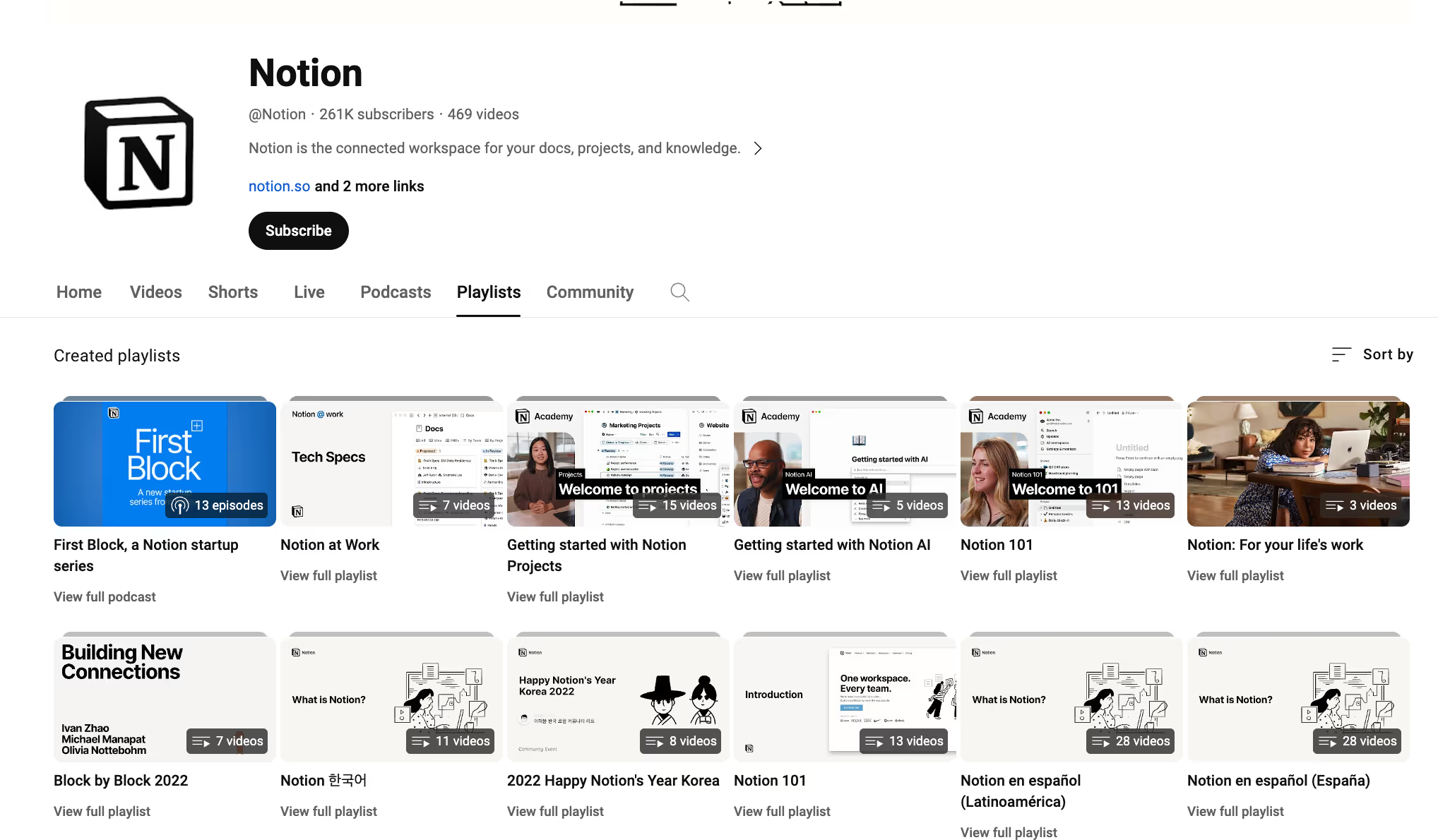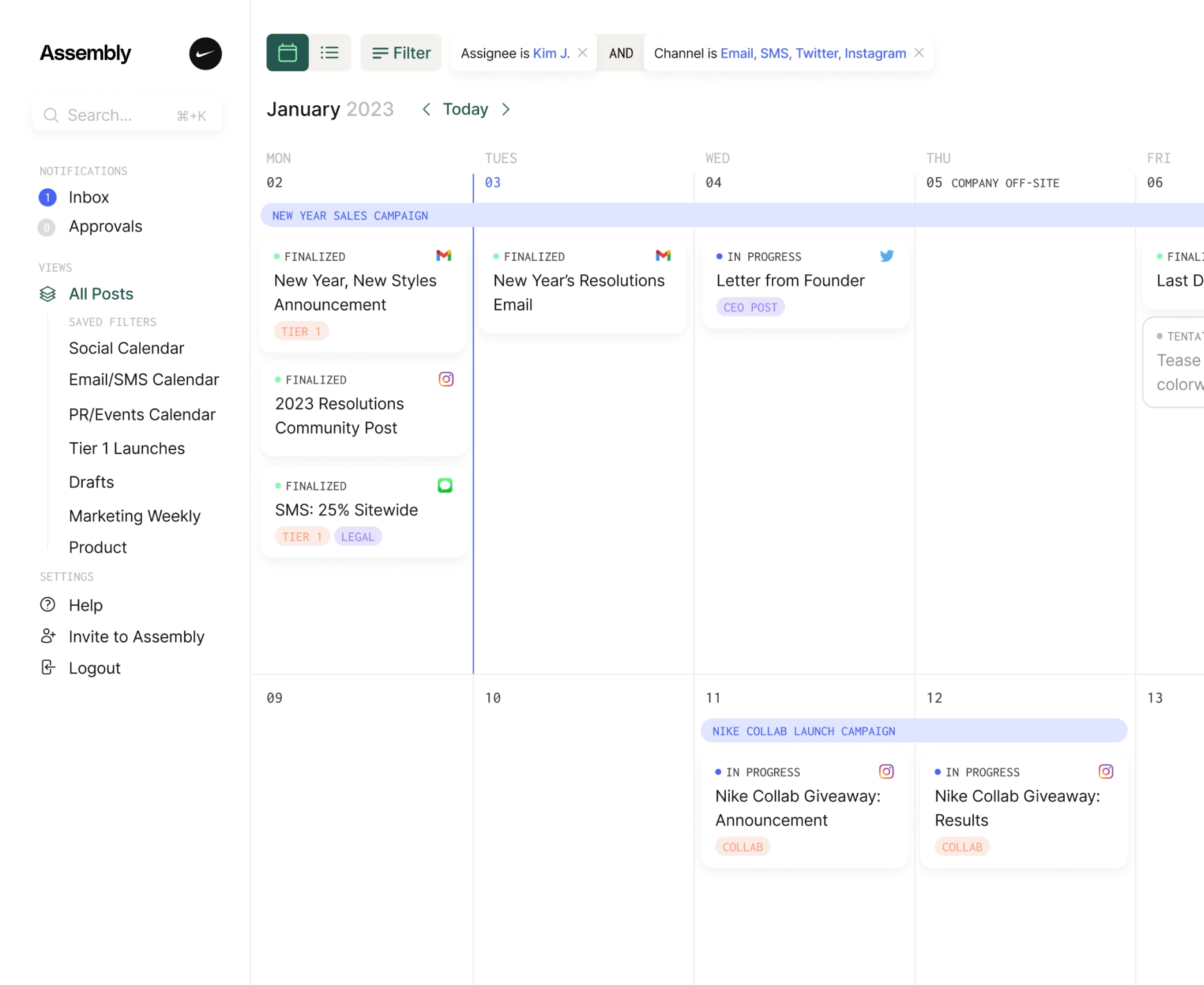
Deep Dive: Notion's "Slow Growth" Social Media Strategy

In the ever-changing landscape of productivity tools and collaboration platforms, Notion has emerged as a shining star, captivating users with its intuitive interface and various functionalities. Beyond its feature-rich offerings, Notion's success can be attributed to its social strategy that keeps its users at the core of their decisions. Let’s dive into the key elements of Notion's social strategy that have propelled it to the forefront of the productivity software market for both consumers and enterprises.

Social Strategy - "Slow Growth"
Rachel Karten's interview with Notion's social media manager, Alex Hao underscores the strategic importance of ‘slow growth’. Notion's choice of a slower pace is tailored to its status as an emerging brand, distinct from other brands that rely on rapid, trend-driven content for visibility.
Slow, sustainable growth isn’t necessarily an outright rejection of trends. We do jump on trends, just not at the expense of our long-term commitments. You can move fast and grow sustainably at the same time.
So what we really mean by “slow growth” is thoughtfully embedding long-term goals within day-to-day initiatives. For us, long-term goals include: making Notion a better product based on user feedback, strengthening our global community’s connections to each other, extending brand awareness to new audiences, and educating on the value Notion can bring.
Social Media Presence
Notion appears to have a comprehensive social media strategy across different platforms like Instagram, TikTok, YouTube, and Linkedin and Twitter - tailoring their approach to align with each platform's strengths and audience preferences. Notion's multi-platform strategy allows them to reach diverse audiences, cater to different content preferences, and effectively showcase their product's versatility while fostering engagement and building a strong brand presence.
Overall, their social media content pillars seem to be centered around
- Educational Content + Resources (like Templates)
- Product Features
- Brand Marketing Campaigns
- Community Engagement - Interviews, User Feedback
While the overall goal is promoting Notion and its capabilities, the execution differs across platforms. Instagram prioritizes visuals and community-building, TikTok focuses on short-form, shareable content, and YouTube offers a more comprehensive educational and community experience.
Their YouTube presence is the most comprehensive, with playlists dedicated to in-depth tutorials, product walkthroughs, and community-focused content like the "First Block" startup series. The strategy here seems to be providing detailed learning resources, fostering a sense of community, and catering to audiences who prefer longer-form video content. In the image below, they highlight Notion 101, Notion at Work, Notion for Personal Work, and even a First Block - Notion interview series with startup founders.

However on Instagram, their strategy seems focused on building a strong brand presence and community engagement. They share a mix of inspirational content, user stories, product updates, and behind-the-scenes glimpses into the company culture. The use of visually appealing images and a consistent aesthetic helps create a cohesive brand identity.
Their Instagram and TikTok are also quite curated - featuring more of How to Use Notion for Life, as well as different product features.

On TikTok, their approach is geared towards creating entertaining, educational, and bite-sized content to showcase Notion's features and use cases. Videos range from user testimonials ("love stories") to how-to tutorials, templates, and promotional teasers. This strategy helps increase awareness, drive adoption, and position Notion as a versatile productivity tool.

While the overall goal is promoting Notion and its capabilities, the execution differs across platforms. Instagram prioritizes visuals and community-building, TikTok focuses on short-form, shareable content, and YouTube offers a more comprehensive educational and community experience.
Key Takeaways
- Slow growth works best with Notion because it focuses on their long-term goals
- Commitment to education and providing resources lets users know they are not just a tool, but a resource for personal and professional growth.
- Having a multi-platform strategy allows them to reach diverse audiences, cater to different content preferences, and effectively showcase their product's versatility while fostering engagement and building a strong brand presence.
Ready to start growing on social media?
Assembly is an end-to-end social media management tool. Join 500+ marketers and agencies who have made the switch.






